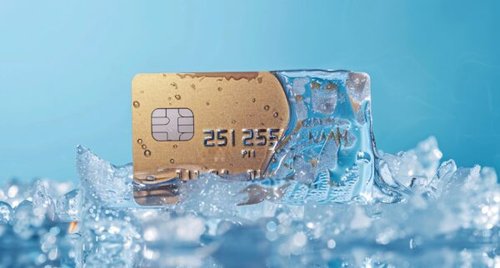Building toward a good credit score can take years in some cases, although this is mostly the case when you’re first starting out. As you experiment with new types of credit, make all your payments on time and ultimately pay off amounts you borrow, your score gets the chance to increase to an acceptable range.
But, reaching a good credit score — or a FICO score of 670 or higher — doesn’t guarantee it will always stay that way. There are quite a few credit mishaps that could explain why your credit score is lower than it once was, and some of them might surprise you.
Why did my credit score drop for no reason?
Late payments
Your payment history is the most important factor that impacts FICO scores, so it shouldn’t surprise you if a late payment takes your score down a few notches. The Fair Isaac Corporation (FICO) says that whether you pay your bills on time regularly is one of the most important details a lender wants to know about you.
“This helps a lender figure out the amount of risk it will take on when extending credit,” they write on their website.
While how much your score can drop based on a late payment depends on a range of factors, Chase says that making a single late payment 30 or more days after the due date can cause your credit score to drop by 100 points or more.
➤ LEARN MORE:Why payment history is such an important part of your credit score
Accounts in collections
Letting late payments stay late means your accounts will eventually go into default and potentially even be sold to a collection agency. This kind of negative information remains on your credit reports for seven years, and it can hurt your score the entire time.
How much will accounts in collections impact your score? It’s hard to say how many points you might lose or how that number might change over time. However, Experian says the following about accounts in collections:
“Accounts that get to the collection stage are considered seriously delinquent and will have a significant and negative impact on your credit report.”
You cancelled a credit card
If you cancelled a credit card because it had a $0 balance and you weren’t using it, you may have inadvertently done something to cause your credit score to drop. After all, the second most important factor that makes up FICO scores is your credit utilization ratio, and closing an account can dramatically impact this ratio overnight.
As an example, imagine you currently owe $2,000 across two credit cards that each have a credit limit of $5,000 (total credit limits of $10,000). This means your current credit utilization ratio is 20%.
If you closed one of the cards and suddenly owed the same $2,000 on total credit limits of $5,000, however, your credit utilization would increase to 40% right away.
Most experts recommend keeping your credit utilization ratio below 10% of your available credit limits (or 30% at maximum) for the best results.
Your debt increased
Another move that can impact your credit utilization ratio and impact your credit score is taking on more debt. If you suddenly add new charges to a credit card without securing higher credit limits, this could be the reason your score has dropped.
Imagine you have a single credit card that you normally keep a $0 balance on, and that you charged a new set of living room furniture to your card for a total cost of $6,000 with plans to pay the charge in full right away. If your credit card billing statement closed before you paid off that balance, you would show a credit utilization ratio of 60% when your credit card reported this information to the credit bureaus.
Someone stole your identity
If your credit score dropped for no reason, it’s probably time to look over your credit reports from the three credit bureaus — Experian, Equifax and TransUnion. Doing so might help you uncover accounts you don’t recognize that could be dragging down your score. Worse, accounts you don’t recognize on your credit reports are a sure sign of identity theft.
You can check your credit reports for free weekly with the website AnnualCreditReport.com. If you find accounts you don’t recognize, you can dispute these accounts on your credit reports. You may also want to freeze your credit reports so no one can use your information to open more fraudulent accounts in your name.
➤ LEARN MORE:Protecting your credit following identity theft
Mistakes on your credit reports
When you look over your credit reports, you may also find common reporting errors and mistakes that could be dragging your score down. According to the Consumer Financial Protection Bureau (CFPB), common credit report mistakes to watch out for include closed accounts reported as open, incorrectly reported late payments, the same debt listed multiple times and incorrect balances.
If you find incorrect information on your credit reports, disputing the information with each credit bureau that reports it could help your score.
You applied for too many new accounts
You may also see some credit score damage if you applied for too many accounts in a short span of time. That’s because this factor makes up another 10% of FICO scores.
Also note that new accounts can reduce the average length of your credit history, which makes up another 15% of FICO scores.
How to improve your credit score
If your credit score took a tumble for one of the reasons listed above (or any other reason), there are steps you can take to turn the situation around. Consider the following moves to get your credit back on track:
- Catch up with late payments. If you have late payments or accounts in collections, getting caught up with those bills can help your credit. Paying off late bills can also help you avoid more added costs caused by penalty interest rates and late fees.
- Pay down revolving debt. Paying down revolving debt you have like credit card debt can also help your credit score by reducing your credit utilization ratio. As a bonus, paying off debt can help you save money on interest.
- Ask for a higher credit limit. Call your card issuer and ask for a higher credit limit on accounts you already have to automatically lower your credit utilization ratio overnight.
- Use a credit building app. Consider using apps like Experian Boost. This free app lets you get credit for payments you’re already making, including utility bills, subscriptions you pay for and even rent.
The bottom line
Seeing your credit score drop is never any fun, but you should also know that credit scores fluctuate over time. As long as you keep debt levels low and pay all of your bills early or on time every month, you should have no problem getting your credit score where you want it to be and keeping it there.



